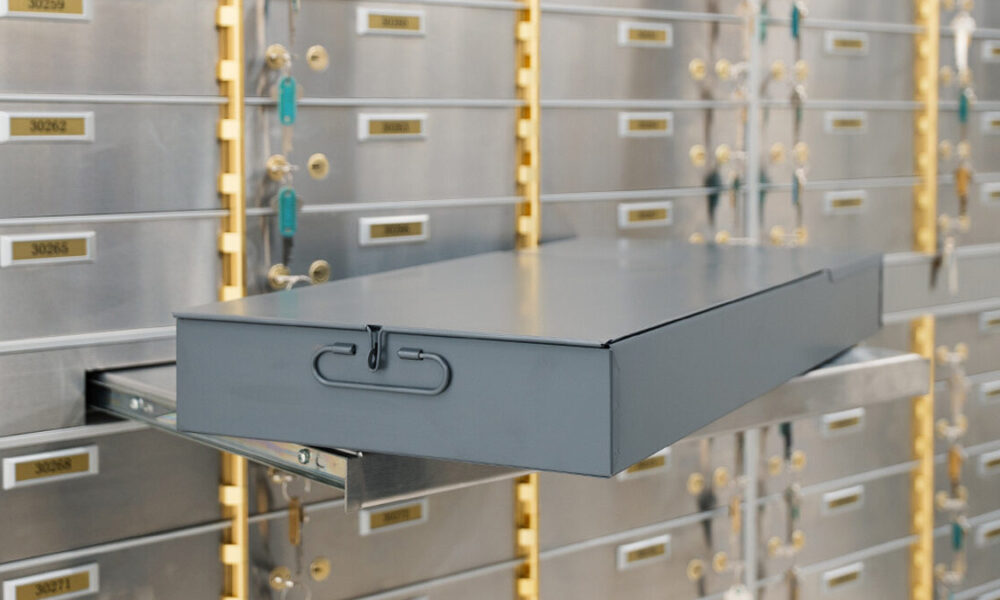When it comes to safeguarding your most valuable possessions, a safety deposit box offers peace of mind and unparalleled security. Based in West Bromwich, just a short drive from Birmingham, the West Bromwich Safety Deposit Centre has been providing residents and businesses with a trustworthy solution for protecting their priceless items for years.
Conveniently located within reach of Birmingham, our facility is accessible to those seeking secure storage solutions across the West Midlands region. But knowing what to store — and what to avoid — is crucial to maximizing the benefits of a safety deposit box. Here, we explore five essential tips to help you make informed decisions about your valuables.
Why Choose a Safety Deposit Box?
Before diving into what to store, it’s important to understand why a safety deposit box is a reliable choice. Unlike home safes, which can be vulnerable to theft, fire, or flood, safety deposit centres are equipped with state-of-the-art security measures. From 24/7 surveillance to controlled access, these facilities are designed to keep your valuables out of reach of unauthorized individuals.
At West Bromwich Safety Deposit Centre, security is our top priority. Our encrypted vaults and professional staff ensure that your prized possessions remain safe, accessible only to you.
Five Items You Should Store in a Safety Deposit Box
1. Important Legal Documents
Legal documents such as wills, property deeds, birth certificates, marriage certificates, and passports are foundational for your estate planning and identification. Storing these in a safety deposit box guarantees their preservation and easy access when needed, especially in emergency situations. Moreover, keeping these documents in a secure location minimizes the risk of theft, loss, or damage.
2. Valuable Jewellery and heirlooms
Heirlooms, expensive jewellery, or sentimental pieces can be vulnerable to theft or damage if stored at home. A safety deposit box keeps these items secure and protected against fire, flood, or other natural disasters. Additionally, storing valuable items outside your residence reduces their exposure to potential burglars.
3. Collectibles and Rare Items
Coins, stamps, rare artwork, or collectible items see their value appreciated over time. Proper storage in a secure facility outside your home ensures these treasures are protected from environmental damage and theft. If you’re an avid collector, a safety deposit box offers a safe and climate-controlled environment to safeguard your investments.
4. Business Documents
For entrepreneurs and small business owners, storing sensitive documents such as contracts, financial statements, and licences in a safety deposit box ensures they remain confidential and protected from physical harm. This is especially useful if you operate in a high-risk environment or simply want to keep irreplaceable business records secure.
5. Digital backups or cryptographic assets
As digital assets become increasingly valuable, some individuals choose to store encrypted digital backups or even cryptocurrency wallets in physical forms, such as USB drives. While not traditionally stored in a safety deposit box, many customers find that keeping digital backups in a secure, offline location complements their overall security strategy.
Things You Should Avoid Storing in a Safety Deposit Box
While safety deposit boxes provide excellent security for many items, there are certain things you should avoid storing in them:
1. Perishable items
Anything that can spoil or deteriorate over time — such as food, fragile items, or perishable chemicals — should never be stored inside a safety deposit box. The environment, despite being secure, may not be suitable for preserving perishable goods.
2. Items with legal restrictions
Some items, such as illegal substances, weapons (without proper permits), or hazardous materials, are prohibited or heavily regulated. Always check local laws and regulations before storing any item to ensure compliance.
3. Receipts and everyday valuables
While it’s tempting to keep receipts or everyday cash in a safety deposit box, these are better stored in a secure home safe or an account locker for quick access. Safety deposit boxes are designed for long-term storage and may involve retrieval wait times.
Tips for Maximizing the Use of Your Safety Deposit Box
- Keep an inventory of what’s stored inside, along with copies of important documents stored elsewhere in case of emergency.
- Update your access permissions regularly, especially if your circumstances change.
- Utilize insurance options, as some safety deposit centres or your home insurer may offer coverage for items stored.
- Choose a reputable facility, like West Bromwich Safety Deposit Centre, that adheres to strict security standards and offers convenient access.
Final Thoughts
A safety deposit box at a trusted facility like West Bromwich Safety Deposit Centre is an investment in peace of mind.

